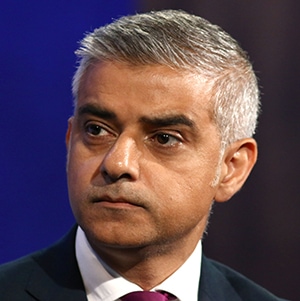With the UK set to leave the European Union in March 2019, the two parties—in a type of negotiation that has never taken place before—still appear far from a trade deal.
Last month, London Mayor Sadiq Khan warned of one possible scenario awaiting Britain post-Brexit: “A lost decade of lower growth.”

Khan was presenting the findings of a comprehensive Cambridge Econometrics report he commissioned. A “hard Brexit,” in which the country would leave both the EU customs union and the single market, according to the study, could cost the UK almost half a million jobs and £46.7 billion (about $64.7 billion) in investment by 2030.
With the UK set to leave the European Union in March 2019, the two parties—in a type of negotiation that has never taken place before—still appear far from a trade deal. Further, any agreement will need unanimous approval of more than two dozen national and regional parliaments across the continent. One key point involves the British financial-services industry’s access to the single market. In a no-deal scenario, banks and financial companies would lose the right to trade freely in the EU; and London’s economic output could fall by 2%, Cambridge Econometrics warns.
“There is no doubt that the economic forecasts of the short-term impact of the vote for Brexit has exaggerated the negative effects: Unemployment has remained at the lowest levels for four decades, and manufacturing output has reached its highest level since the financial crisis,” says University of Kent professor Matthew J. Goodwin, coauthor of Brexit: Why Britain Voted to Leave the European Union. “We have not seen the dramatic collapse that many pro-Remain politicians predicted.”
Still, as the departure from the EU draws closer, the threat Brexit poses to the UK’s economy grows clearer; and the idea of holding a second referendum on the country’s membership in the EU is now widely supported.
“Whereas the short-term effects of Brexit have not been catastrophic as many thought,” Goodwin concedes, “many are now realizing that the longer-term picture remains, to say the least, unclear.”



